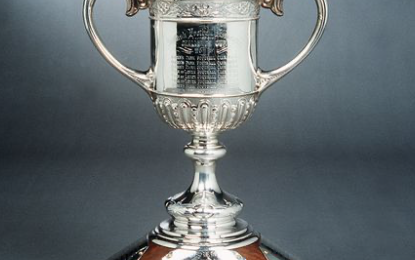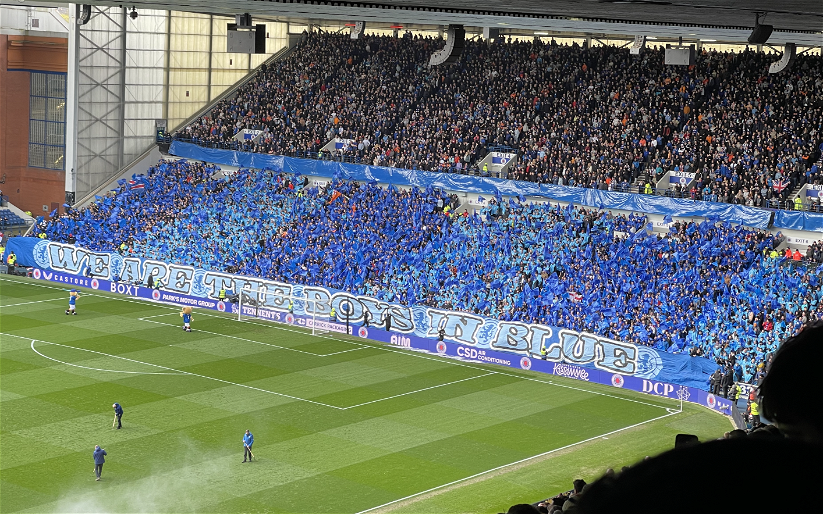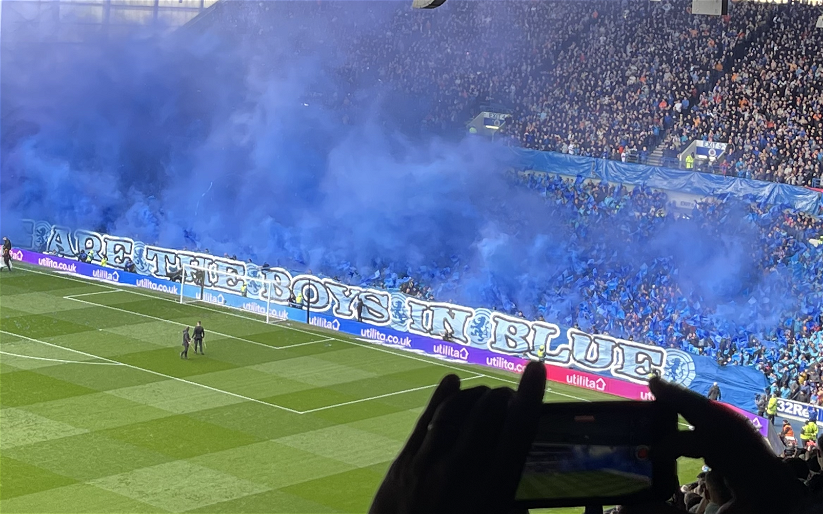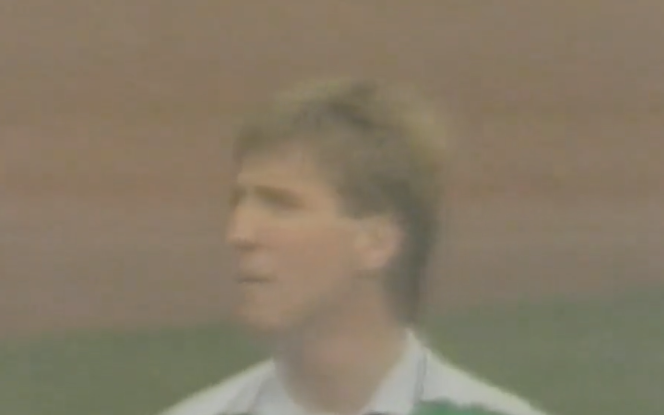By Alistair Aird
Sunday sees us take a brief detour from the title race and European escapades as we travel to Dens Park to take on Dundee in the last eight of the Scottish Cup.
We have faced the Dens Park side 25 times in the Scottish Cup, with the first encounter coming back in season 1896/97. Ironically, it was a quarter final tie in Dundee. Rangers won 4-0 against a Dundee side that had only been formed in 1893. Rangers won the trophy that season, beating Dumbarton 5-1 in the Final. That team was hailed as the ‘Three Cups’ team as the Glasgow Merchants Charity Cup and Glasgow Cup also found their way to the Ibrox trophy room.
The next encounter in season 1908/09 went to a replay. After a 0-0 draw in Dundee, Bill McPherson, who was signed from Liverpool, got the only goal of the replay at Ibrox. That set Rangers on the road to an infamous Final against Celtic, and it would be McPherson who got the solitary goal in the quarter final and semi final too.
Digressing from Dundee slightly, the Final was eventful. The first match against Celtic was drawn 2-2, and a week later, it was honours even again, 1-1 after 90 minutes. There had been rumours in the newspapers that extra time would be played in the event of a draw, so at the end of the game, the 60,000 crowd waited in anticipation. When the additional half hour wasn’t forthcoming, the supporters rioted. They stormed the pitch and went on the rampage for four hours.
For once, the Old Firm were united. They petitioned the SFA to say they were not interested in a third match. The governing body agreed, and the Cup was withheld.
There weren’t many notable moments in the next few Cup clashes with Dundee, save the match at Ibrox on 31 January 1931. The match should not have started, with contemporary pictures showing that torrential rain had left much of the playing surface covered with pools of water. Indeed, the correspondent in the Glasgow Herald described the scene beautifully, stating ‘As a pond for model yacht racing the pitch might have delighted the eye of any protagonist of that sport but for an important Cup-tie well, it seemed hardly good enough.’
Reading on further, it appears that the conditions weren’t too much of a deterrent as a pulsating match unfolded. The reporter admits that the ball got caught up in the water from time to time but notes that it was a ‘ding-dong affair’. Andy Campbell opened the scoring for the visitors just before the interval, but the prolific Jimmy Fleming had Rangers level within seconds, heading the ball beyond Bill Marsh in the Dundee goal. But although Rangers had the territorial advantage after the interval, Jimmy Robertson scored with 10 minutes to go to take the Taysiders through to the next round.
Swinging into the Sixties
Rangers won the next three ties between the sides, but when they were drawn together in Round Two in season 1960/61, a belter of a tie was expected. This would be the fifth encounter of the season between the teams, Rangers having won 5-3 on aggregate in the last eight of the League Cup, while Dundee had won both league fixtures. The last of them was just three days before the Scottish Cup match, Alan Gilzean scoring twice for Dundee in a 4-2 win. But boy, did Rangers get revenge in the Cup.
Wearing what Peter Hendry of the Evening Times referred to as ‘scarlet jerseys’, Rangers were irresistible in the first half. Max Murray, who had scored twice in the league defeat, opened the scoring after 10 minutes, and three minutes later, Ralph Brand got on the end of a Davie Wilson cross to make it 2-0. And although Gilzean hit the inside of the post, it was Rangers who scored next courtesy of a stunning solo goal from Brand. By half time it was 4-0, Alex Scott scoring with a left foot shot.
White-shirted Dundee reduced the arrears six minutes after the restart through Alan Cousin, but although they forced Rangers to defend for most of the second half, Murray scored the sixth goal of the game with four minutes to go. Incidentally, on the same afternoon, Hibernian pummelled Peebles Rovers 15-1. Joe Baker scored nine of their goals.
There were goals galore when the teams played again in the Cup in 62/63 – Rangers winning the replay by the odd goal in five – but it is the Final of season 1963/64 that is still spoken of by both sets of supporters today.
In front of staggering crowd of 120,982, Dundee, who won the league in 1961/62 and reached the semi final of the European Cup the following season, had their goalkeeper, Bert Slater, to thank for keeping the scoresheet blank in a lively first half. Slater thwarted Brand three times, Jimmy Millar twice and denied Jim Baxter too.
But the deadlock was broken after 69 minutes thanks to a fine header from Millar. However, Dundee’s response was immediate, Kenny Cameron latching on to a Gilzean pass and firing in the equaliser.
Slater continued to repel Rangers, but his resistance was broken again with a couple of minutes to go, Millar netting another header. Brand applied the icing on the cake shortly afterwards, grabbing his 29th goal of the season to complete a domestic Treble for only the second time in Rangers’ history.
There was something quite remarkable about the next time Rangers and Dundee crossed swords in the Cup. Dens Park and Tannadice are separated only by a few hundred yards, yet when Dundee drew Rangers and United were paired with Hearts in the second round on 17 February 1968, it was decided that both ties would take place on the same day. The kick-offs were staggered – 3pm at Dens Park, 2pm at Tannadice – but even so with a combined attendance of over 40,000 people, the congestion must have been significant. For the record, Dundee and Rangers drew 1-1 and Hearts edged an ELEVEN goal thriller against United. It finished 6-5, with former Rangers winger Davie Wilson on the scoresheet for the home side.
Savaged on a Sunday
There was an addition to the history books when we drew Dundee again six years later. With electricity generation restricted due to strike action taken by miners and rail workers, the Conservative Party government introduced ‘the three-day week’ on 1 January 1974. The aim was to conserve electricity, so with football not falling into the ‘exempt’ category, floodlighting was limited. Sunday football became a thing as a result, and 64,672 turned up at Ibrox for Rangers’ Sabbath debut on 17 February. But it was far from a satisfying Sunday for the follow followers, a dominant Dundee winning 3-0.
We fared better when Dundee visited again in season 1978/79, emerging with a 6-3 victory at the quarter-final stage. But after winning 2-0 at Ibrox again in 1982, we suffered two painful defeats in successive seasons, the latter of which could well have finished our greatest ever goalscorer’s Rangers career before it had even started.
Ally, Ally get tae f**k
The early 1980s were a grim time for Rangers. After succeeding Jock Wallace as manager and coming within a matter of minutes of winning another domestic Treble, it had all gone rather pear-shaped for John Greig. By the start of season 1983/84, Rangers were still a team in transition and had now gone five seasons without winning the Premier Division title. And when the new season started abysmally – Rangers lost five of their first nine league matches – Greig resigned.
Jock Wallace returned to the manager’s office, and immediately galvanised Rangers. After losing his first game in charge 3-0 at Pittodrie, he led Rangers to a 19-match unbeaten run that not only hauled them out of the mire at the bottom of the league but also took them to the last eight of the Scottish Cup. Their opponents at that stage would be Dundee.
The teams faced each other at Dens Park on 10 March 1984. An own goal from George McGeachie broke the deadlock before two soon-to-be Rangers players, Cammy Fraser and Iain Ferguson, were involved when the latter scored the equaliser. But Rangers hit the front again when Bobby Russell scored a beautiful goal after 25 minutes.
It was then that the controversy started. With Rangers trying to protect their lead by repelling what Dundee were throwing at them, Nicky Walker made a fine save to turn a header from Iain MacDonald on to the bar. The ball broke to Walker McCall who equalised. Or so he thought.
Although the referee, Alan Ferguson, awarded the goal, he soon reversed his decision when he saw his linesman had his flag raised. He promptly awarded a free-kick to Rangers. There didn’t seem to be any infringement, and confusion reigned later too when the official explanation given was that the ball had gone out of play after it hit the bar and had been blown back on by the wind. If that bizarre circumstance was the case, then one would have thought Dundee should have been awarded a corner. As it was, Dundee did eventually draw level when Albert Kidd scored with 18 minutes to go to force a replay.
That took place seven days later, and it was a tempestuous affair. Dundee hit the front after 22 minutes – Jim Smith profiting from a Nicky Walker error – and doubled their lead through Ferguson after 63 minutes. Rangers had missed a plethora of chances in between the goals – Ally McCoist had hit the post, for example – but they clawed themselves level by scoring twice inside seven minutes. John McClelland and Dave McPherson were the men on target.
Suddenly, Rangers were on the front foot, pushing for a winner. Despite being down to ten men – Ian Redford had been ordered off for a clash with Kidd – Wallace’s side were making inroads until they were caught on the counterattack. Iain Ferguson, who would be a Rangers player a couple of months later, scored and Rangers were out. And there was further anguish as the teams left the field, Robert Prytz talking himself into trouble and getting a red card after a verbal exchange with the referee.
The unbeaten start under Wallace was over after 20 matches (13 wins, seven draws), but Rangers recovered immediately, and eight days later there was a shiny cup in the trophy room courtesy of a 3-2 win over Celtic in the Final of the League Cup. But by the time Dundee came back to Ibrox the following season in the Scottish Cup, the honeymoon had most certainly ended both for Wallace and the Cup Final hat trick hero, McCoist.
The League Cup had been retained, but league form was incredibly inconsistent. Although unbeaten after eight games, Rangers won only five of their next 18 Premier Division matches, with the last league fixture prior to Dundee’s visit being a 0-0 draw against Dundee United. They were therefore effectively out of the title running, lying in third position, eleven points adrift of leaders Aberdeen with ten games to go.
The Cup was therefore the last realistic opportunity for Wallace to add more silverware to the Rangers Roll of Honour. But Dundee came into the game with their tails up having beaten Celtic 2-0 at Dens Park a week earlier. And after just nine minutes at Ibrox, an Old Firm double was very much on the cards when John Brown rifled a left foot shot into the net, punishing some hesitant defending from the home side.
After that early setback, Rangers did try and get themselves back into the game, but it would prove to be ‘one of those days’. And although there were others who spurned chances to score, it was one Alistair McCoist who bore the brunt of the supporters ire.
Signed from Sunderland in June 1983 for £185,000, McCoist had had a decent debut season, scoring 20 goals in 47 appearances. Three of those goals had been in the League Cup Final against Celtic. But season 1984/85 was a different matter. Dropped after a bad miss away from home against Inter Milan in the UEFA Cup, McCoist was now back in the team, although he hadn’t scored in the league since September.
That being said, no one had been particularly prolific during that spell. In the 19 league games played since McCoist had last netted a Premier Division goal, Rangers had scored 25 goals. These were shared among 11 players; Iain Ferguson (5), Davie Cooper (4), Dave Mitchell (4), Ian Redford (3), Cammy Fraser (2), John MacDonald (2), Ally Dawson (1), Craig Paterson (1), Ted McMinn (1), Robert Prytz (1) and Derek Johnstone (1).
McCoist had started the three league matches that preceded the visit of Dundee, wearing the unfamiliar number seven jersey. And that was the number on his back when Wallace selected him again in his starting XI, Ally partnering Derek Johnstone in attack. John MacDonald and Davie Cooper would also have been expected to add potency in the forward areas. But none of them could muster an equaliser, although McCoist did have a goal ruled out for offside.
Despite several players being culpable of profligacy in front of goal, the fans united and howled at McCoist. He was their scapegoat, and they berated him as the game entered its closing stages, telling him in no uncertain terms where to go. The hymn of hate couldn’t have been nice to hear, and McCoist admitted to being reduced to tears in the dressing room after the match.
In these social media-driven days of hyperbolic overreaction, one can only imagine what kind of abuse McCoist would have received in the days that followed. But back in 1985, fans vented their fury by staging demonstrations outside the ground on Edmiston Drive. And on this occasion, it was reported that one supporter was so disgruntled that he hurled the remainder of his season ticket through the front door of the stadium.
It must have been tough on McCoist, aged just 22 at the time. But the messages of support Ally received would most certainly have helped as he licked his wounds. He recalls receiving a lovely letter of support from the legendary former Rangers centre-half, Willie Woodburn, and although he would be dropped to the reserves – scoring twice in a 5-1 win over Hearts at Ibrox – McCoist was backed by his manager and soon returned to the first team. His trickle of goals soon became a spate too.
There were also prophetic words from Alan Davidson as he assessed how Rangers would recover from the Dundee defeat the following Monday in the Evening Times. Davidson stated, ‘Despite missing three chances – and becoming the victim of nasty, derisive chants – Ally McCoist should be part of that team. He has ability, but his confidence is obviously at a very low ebb. The chance to establish himself might well be the answer and Rangers could reap the dividends in the future.’
We all know that that return for Rangers was indeed a rich one. McCoist triumphed in the face of adversity, and by the time Rangers faced Dundee again in the Scottish Cup in 1998, he had racked up nearly 600 appearances for Rangers, won ten league titles, nine League Cups, a Scottish Cup and the European Golden Boot twice. Oh, and on top of all that the two goals he scored to win the replay at Dens Park in 1998 were his 349th and 350th competitive goals in a Rangers jersey.
The teams next faced each other in the 2003 Final. It was a low-key affair coming six days after the epic shoot-out on the final day of the league season. Rangers looked jaded, but a goal from the departing Lorenzo Amoruso was enough to win the game. The Italian was off to Blackburn Rovers, and Arthur Numan played his last game for Rangers that afternoon too, although he wasn’t off to pastures new. He had decided to hang up his boots at the age of 33.
Although the teams met at Ibrox in the 2015/16 competition – Rangers won 4-0 – that replay win in 1998 is the last time Rangers faced Dundee at Dens Park in the Scottish Cup. And our overall record there is good. In 11 Scottish Cup ties, we’ve won six and only lost once. That was back in 1911 when a Billy Hogg goal wasn’t enough for William Wilton’s Rangers who lost 2-1. One of Dundee’s goals was scored by the former Rangers player, R.C. Hamilton.
Rangers went into that tie in 1911 on the back of a 13-match unbeaten run. They were overwhelming favourites, as they will be again on Sunday. But that match and others in the long history of the Scottish Cup have shown that the favourites tag doesn’t guarantee progression. You must earn the right, and it must be hoped that our attitude and application is spot on. If it is, then our fine record on Tayside should be extended as the search for silverware on three fronts continues.
Complete Head-to-Head stats in the Scottish Cup
|
Season |
Round |
Venue |
Result |
Scorers for Rangers |
|
1896/97 |
Quarter Final |
Dens Park |
Dundee 0 Rangers 4 |
Gibson, Hyslop, A. McCreadie, J. Miller |
|
1908/09 |
Round Two |
Dens Park |
Dundee 0 Rangers 0 |
|
|
Round Two Replay |
Ibrox Stadium |
Rangers 1 Dundee 0 |
McPherson |
|
|
1910/11 |
Quarter Final |
Dens Park |
Dundee 2 Rangers 1 |
Hogg |
|
1930/31 |
Round Two |
Ibrox Stadium |
Rangers 1 Dundee 2 |
Fleming |
|
1952/53 |
Round Two |
Dens Park |
Dundee 0 Rangers 2 |
Hubbard, Grierson |
|
1954/55 |
Round Five |
Ibrox Stadium |
Rangers 0 Dundee 0 |
|
|
Round Five Replay |
Dens Park |
Dundee 0 Rangers 1 |
Gallagher (OG) |
|
|
1955/56 |
Round Six |
Dens Park |
Dundee 0 Rangers 1 |
Kichenbrand |
|
1960/61 |
Round Two |
Dens Park |
Dundee 1 Rangers 5 |
Murray (2), Brand (2), Scott |
|
1962/63 |
Quarter Final |
Dens Park |
Dundee 1 Rangers 1 |
Brand (pen) |
|
Ibrox Stadium |
Rangers 3 Dundee 2 |
Brand (2), Hamilton (OG) |
||
|
1963/64 |
Final |
Hampden Park |
Rangers 3 Dundee 1 |
Millar (2), Brand |
|
1967/68 |
Round Four |
Dens Park |
Dundee 1 Rangers 1 |
Stewart (OG) |
|
Round Four Replay |
Ibrox Stadium |
Rangers 4 Dundee 1 |
Watson (2), Persson, Easton (OG) |
|
|
1973/74 |
Round Four |
Ibrox Stadium |
Rangers 0 Dundee 3 |
|
|
1978/79 |
Quarter Final |
Ibrox Stadium |
Rangers 6 Dundee 3 |
Jardine (pen), A. MacDonald, Smith, T. Forsyth, Russell, Cooper |
|
1981/82 |
Quarter Final |
Ibrox Stadium |
Rangers 2 Dundee 0 |
Johnstone, McAdam |
|
1983/84 |
Quarter Final |
Dens Park |
Dundee 2 Rangers 2 |
Russell, McGeachie (OG) |
|
Quarter Final Replay |
Ibrox Stadium |
Rangers 2 Dundee 3 |
McPherson, McClelland |
|
|
1984/85 |
Round Four |
Ibrox Stadium |
Rangers 0 Dundee 1 |
|
|
1997/98 |
Quarter Final |
Ibrox Stadium |
Rangers 0 Dundee 0 |
|
|
Quarter Final Replay |
Dens Park |
Dundee 1 Rangers 2 |
McCoist (2) |
|
|
2002/03 |
Final |
Hampden Park |
Dundee 0 Rangers 1 |
Amoruso |
|
2015/16 |
Quarter Final |
Ibrox Stadium |
Rangers 4 Dundee 0 |
Forrester, Holt, Halliday, Wallace |
Credit once again to the magnificent ‘Rangers – The Complete Record’, a required resource when compiling an article such as this.




